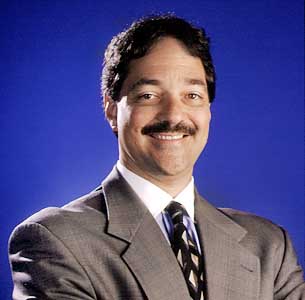 Ellen Podgor and Peter Henning do a great job of breaking down the issues and details of the Second Circuit’s decision in overturning the conviction of Frank Quattrone yesterday, so I’m attempting to step back and assess the big picture.
Ellen Podgor and Peter Henning do a great job of breaking down the issues and details of the Second Circuit’s decision in overturning the conviction of Frank Quattrone yesterday, so I’m attempting to step back and assess the big picture.
In so doing, one thing is becoming clear — Quattrone is the new poster boy for the enormous costs involved in the dubious governmental policy of attempting to regulate business fraud through criminalization of corporate agency costs.
As with the government’s case against Martha Stewart, the government did not prosecute Quattrone for alleged crimes related to his supposed mishandling of allocation of stock offerings during the technology boom. Rather, the government prosecuted him for allegedly attempting to cover up those purported crimes.
As a result, the prosecution’s case was built upon mostly email messages between Quattrone and his CSFB employer’s in-house counsel, all of which were innocuous in nature. Even the key email in the prosecution (as with Arthur Andersen, one relating to CSFB’s document retention policy) was one that Quattrone forwarded with the comment that he agreed with the email as he was hurriedly getting ready to leave his office for the day.
No one acted on Quattrone’s email and, within days of it, CSFB’s in-house counsel was advising him that it was “a big problem” because of the various ongoing investigations involving CSFB.
Of course, once CSFB settled and waived its corporate attorney-client privilege, that email became evidence in the prosecution against Quattrone. Thus, the jury was allowed to see evidence that a lawyer who appeared to be working in concert with Quattrone thought that his seemingly innocuous email was “a big problem.”
Talk about being put on the defensive from the start.
Meanwhile, the prosecution figured that its case against Quattrone was not sexy enough without more, so it presented evidence that Quattrone was allegedly involved in illegal activity that was not a part of the indictment (the Second Circuit ruled that it was error for the District Court to allow that into evidence) and that his motive for allegedly obstructing the investigations was so that could greedily preserve his huge CSFB compensation package (which the Second Circuit said was OK).
So, where does this leave us?
Well, it’s clear that the costs of the government’s criminalization of corporate agency costs are extraordinary. Based on Quattrone’s experience, no executive can rely any longer on the executive’s communications with company counsel remaining confidential or privileged. Thus, it would be far more prudent for an executive to say nothing to corporate counsel and to retain personal counsel immediately.
Better yet, the executive should forsee such problems and require as a part of the executive’s employment agreement that personal counsel be provided to the executive on the company’s dime. Good for the legal business, but not a prescription for reducing a company’s administrative costs or for facilitating open discourse regarding business or legal problems.
But should the executive even continue working for the employer after such investigations are commenced? Inasmuch as many of Quattrone’s actions that were used to prosecute him were performed in the normal course of interacting with others within CSFB regarding the status of the investigations, a powerful argument can be made that virtually anything that Quattrone did at that point — including simply sitting in his office and saying nothing — would have been used against him in the subsequent cover-up prosecution.
Indeed, even an immediate resignation would probably have been used by the prosecution as evidence of Quattrone’s culpability. Are we prepared to endure the cost attributable to companies losing key personnel simply because someone in government has elected to commence an investigation of those companies?
Thus, the lottery of regulating business fraud through criminalization of corporate agency costs is having huge and largely unevaluated costs. If the government pursues bit players such as William Fuhs or Daniel Bayly in the Enron-related Nigerian Barge case and can come up with something particularly distasteful to the jury — such as Merrill’s involvement with the corporate pariah Enron — then it wins and productive careers are destroyed.
On the other hand, even if the government oversteps with regard to a big fish such as Frank Quattrone, then the government may lose the battle, but it still wins the war because Quattrone is out of business.
This is not a rational deployment of our justice system, and the economic costs — not to mention the emotional carnage to the families of the executives who are caught in this troubling spiral — simply cannot be responsibly dismissed as a “trade-off” of an imperfect system.
Update: Don’t miss Christine Hurt’s clever analysis of Quattrone’s impact on the means for notification of a company’s document retention policy.










